Fall 2021
MIT Faculty Council | Cambridge, MA
In summer 2020, twenty-three Massachusetts Institute of Technology (MIT) faculty members with environmental commitments and interests met in virtual Council sessions over five weeks. Based on the overwhelmingly positive feedback from participants, MIT has since held three additional Council sessions for faculty and staff, and has formed a Steady Council to continue conversations for those who have participated in past circles.
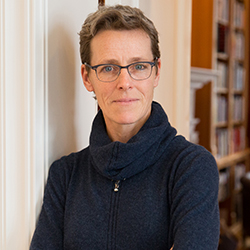
Kate Brown
Kate Brown is Siebel Distinguished Professor in the History of Science (STS). Her research interests illuminate the point where history, science, technology and bio-politics converge to create large-scale disasters and modernist wastelands. She has written four books about topics ranging from population politics, linguistic mapping, the production of nuclear weapons and concomitant utopian communities, the health and environmental consequences of nuclear fallout from the Chernobyl disaster to narrative innovations of history writing in the 21st century. She is currently exploring the history of what she calls “plant people:” indigenes, peasants and maverick scientists who understood long before others that plants communicate, have sensory capacities, and possess the capacity for memory and intelligence. She teaches environmental history, Cold War history, and creative non-fiction history writing. Brown’s books have won numerous prizes, and she has held fellowships from the Guggenheim Foundation, the Carnegie Foundation, the European University Institute, The Kennan Institute, Harvard’s Davis Center for Russian and Eurasian Studies, and the U.S. Holocaust Museum.
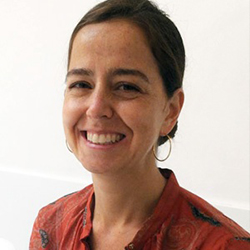
Gabriella Carolini
Gabriella Carolini is an Associate Professor in the International Development Group in the Department of Urban Studies and Planning at
MIT. Her research focuses on the dynamic relationship between social and fiscal responsibilities in the public sector, exploring the interaction of fiscal and administrative reforms with planning for infrastructure and public health in vulnerable urban and peri-urban communities in the global South. Her work is largely based within Sub-Saharan Africa and Latin America, regions where she specifically
studies how South-South cooperation and project evaluation practices impact urban development, particularly with regard to water and sanitation services and community health. Gabriella has actively engaged in research and projects in Argentina, Brazil, Chile, Ethiopia,
Malaysia, Mozambique, and South Africa. She has served as the lead co-chair of the Global Planning Educators’ Interest Group within the Association of Collegiate Schools of Planning and within MIT works as a collaborating member of the Displacement Research and Action
Network, the Faculty Council of the Community Innovators Lab (CoLab), the MIT-AFRICA Advisory Committee, and advisor to the Urban Africa student initiative.
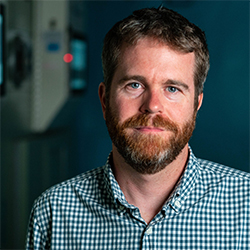
David Des Marais
David Des Marais is an Assistant Professor in the Civil and Environmental Engineering (CEE) faculty. The primary focus of research in the Des Marais Lab is to understand the mechanisms of plant-environment interaction. We use tools from molecular, quantitative, and population genetics to identify the physiological basis of plant response to environmental cues, and ask how these mechanisms constrain or facilitate plant breeding and evolutionary change.
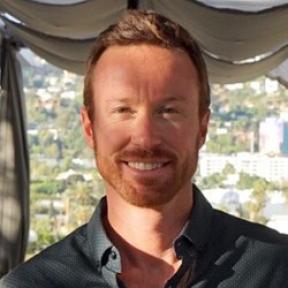
Kevin Gallagher, convener
Kevin Gallagher is an author, attorney and facilitator dedicated to repairing the human relationship to nature. He spent a decade in
Washington DC working on Federal, State and international climate change policy and international peace building. He is the founder of
Emergent Resilience, a non-profit organization focused on helping individuals and organizations navigate this time of transition with
resilience and engagement, and an organizing member of Sacred Activism, a think tank exploring the intersection of climate change and mindfulness. Kevin is a National Convener and Core Team member of the Council on the Uncertain Human Future. His forthcoming book,
Climate Rite: Initiation of an Eco-Chaplain, explores the emotional and psychological impacts of a climate-changed world.
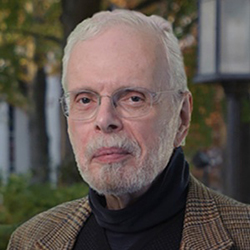
Leon Glicksman
Leon Glicksman, Professor of Building Technology and Mechanical Engineering, works on research and consulting related to energy-efficient
building components and design, natural ventilation, sustainable design for developing countries, and design tools. He is a member of the MIT Energy Council and co-chair of the campus energy initiative. He did basic studies to improve thermal insulation for buildings during the period when CFCs were removed from insulation. He has directed several experimental studies of ventilation flows in buildings that form the basis for a book on design guidelines for displacement ventilation Currently, he is leading an MIT effort to develop energyefficient, sustainable building technologies and compatible designs. Glicksman and coworkers are developing a web site for advanced building designs that can be easily used by architects and developers in the early stages of design. Guidelines for sustainable buildings for the MIT campus
are being defined. He is leading the development of advanced aerogel insulation systems as part of the MIT DMA Program. Glicksman is a consultant to numerous agencies and companies, the principal investigator on several research projects, and a member of the ASHRAE, AIChE, and ASME.
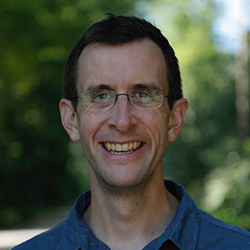
David McGee
David McGee is an Associate Professor of Earth Science (EAPS), whose research focuses on understanding the atmosphere’s response to past
climate changes. By documenting past changes in precipitation and winds using geochemical measurements of stalagmites, lake deposits and marine sediments and interpreting these records in the light of models and theory, he aims to offer data-based insights into the patterns, pace and magnitude of past hydroclimate changes. His primary tool is measurements of uranium-series isotopes, which provide precise uranium-thorium dates for stalagmites and lake deposits and allow reconstructions of windblown dust emission and transport using marine sediments.
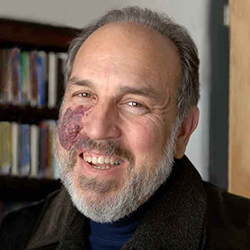
Lawrence Susskind
Professor Lawrence Susskind is Ford Professor of Urban and Environmental Planning. His research interests focus on the theory and practice of negotiation and dispute resolution, the practice of public engagement in local decision-making, entrepreneurial negotiation, global environmental treaty-making, the resolution of science-intensive policy disputes, renewable energy policy, climate change adaptation, socially-responsible real estate development and the land claims of Indigenous Peoples. Professor Susskind is the author or co-author of twenty books including, most recently, Environmental Problem-Solving (Anthem), Managing Climate Risks in Coastal Communities: Strategies for Engagement, Readiness and Adaptation (Anthem), and the second edition of Environmental Diplomacy (Oxford Press). Professor Susskind is currently Director of the MIT Science Impact Collaborative, Director of the MIT-UTM Malaysia Sustainable Cities Program (MSCP) and Codirector of the Water Diplomacy Workshop.
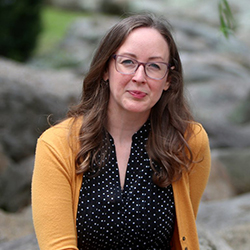
Megan Black
Megan Black is an Associate Professor of history, and an historian of U.S. environmental management and foreign relations in the late
nineteenth and twentieth centuries. She is the author of The Global Interior: Mineral Frontiers and American Power, which analyzes the
surprising role of the U.S. Department of the Interior in pursuing minerals around the world—in Indigenous lands, formal territories, foreign nations, the oceans, and outer space. Professor Black has published articles and review essays in The Journal of American History, Modern American History, Diplomatic History, and American Quarterly. At MIT, Professor Black offers the courses U.S. Environmental Governance: From National Parks to the Green New Deal and Global Commodities, American Dreams. Her teaching interests span the fields of environmental history, foreign relations history, history of capitalism, science and technology studies, and histories of the U.S. West and settler colonialism.
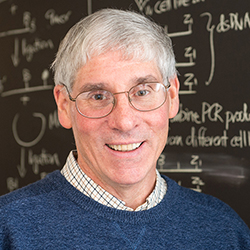
John Essigmann
John Essigmann is Professor of Chemistry, Toxicology and Biological Engineering (BE). He was the Associate Head of the Department of Chemistry until 2012, responsible for graduate and undergraduate education, and since that time he has been the Director of the MIT Center for Environmental Health Sciences. The research objective of the Essigmann laboratory is to understand the relationship between the structures of lesions formed in the genome by DNA damaging agents and the specific biological endpoints of mutation, cancer, and cell death. In the area of carcinogenesis, they probe the molecular etiology of human cancer. Their parallel studies on antitumor drugs focus upon uncovering the mechanism of action of existing drugs. Based upon that understanding, the Essigmann laboratory design novel compounds that could be useful for the treatment of cancer.
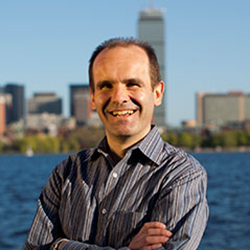
Pierre Lermusiaux
Pierre Lermusiaux is an Associate Professor of Mechanical Engineering and Ocean Science and Engineering at MIT. He has made outstanding
contributions in data assimilation, as well as in ocean modeling and uncertainty predictions. His research thrusts include understanding and
modeling complex physical and interdisciplinary oceanic dynamics and processes. With his group, he creates, develops and utilizes new mathematical models and computational methods for ocean predictions and dynamical diagnostics, for optimization and control of autonomous ocean systems, for uncertainty quantification and prediction, and for data assimilation and data-model comparisons. He received a Fulbright Foundation Fellowship (1992), the Wallace Prize at Harvard (1993), the Ogilvie Young Investigator Lecture in Ocean Eng. at MIT (1998), and the MIT Doherty Chair in Ocean Utilization (2009-2011). In 2010, the School of Eng. at MIT awarded him with the Ruth and Joel Spira Award for Distinguished Teaching.
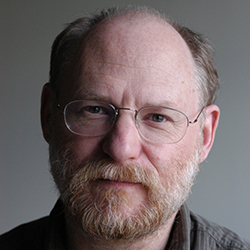
Haynes Miller
Haynes Miller joined the MIT mathematics faculty as professor in 1986. Professor Miller is an algebraic topologist. In 1992-93, he served as Chair of the Pure Mathematics Committee. From 2004 to 2013 Professor Miller has chaired the Undergraduate Mathematics Committee, which he
continued as Associate Department Head from July 2011-June 2013. He has worked on many educational initiatives, such as the Cambridge-MIT Exchange program, for which he received the Cambridge-MIT fellowship in 2003, and creation of the Electronic Seminar on Mathematics Education. Professor Miller was selected by MIT to be a MacVicar Faculty Fellow in 2005 for “exemplary and sustained contributions to the teaching and education of undergraduates at MIT,” and received the Graduate Student Council Teaching Award of the School of Science in 2006 and the Alan J. Lazarus Award for Excellence in Advising in 2021.
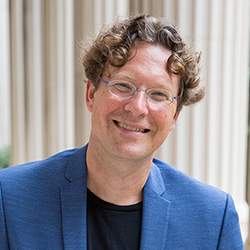
Christoph Reinhart
Christoph Reinhart is Professor and Director of the Building Technology Program at MIT. He is a building scientist and architectural
educator working in the field of sustainable building design and environmental modeling. Christoph is a physicist by training and holds a
doctorate in architecture from the Technical University of Karlsruhe. At MIT he leads the Sustainable Design Lab (SDL), an inter-disciplinary group with a grounding in architecture that develops design workflows, planning tools and metrics to evaluate the environmental performance of buildings and neighborhoods. He is also the head of Solemma, a technology company and Harvard University spinoff as well as Strategic Development Advisor for mapdwell, a solar mapping company and MIT spinoff. Products originating from SDL and Solemma are used in practice and education in over 90 countries. Mapdwell has been recognized with FastCompany’s Design by Innovation 2015 award for Data Visualization as well as a Sustainia 100 award.
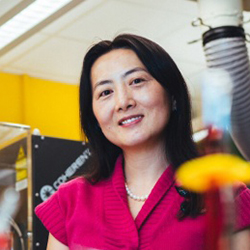
Yang Shao-Horn
Professor Shao-Horn is the W.M. Keck Professor of Energy at the
Massachusetts Institute of Technology (M.I.T.), as well as a Professor of Mechanical Engineering and Materials Science and Engineering.
Professor Shao-Horn’s research programs are centered on exploiting chemical/materials physics and physical/materials chemistry principles
to understand charge transfer at the solid-gas and solid-liquid interface, which is used to design materials/processes and control the kinetics of (electro)chemical reactions, critical to enable the deployment of clean air and clean energy technologies. Professor Shao- Horn and coworkers have pioneered the use of electronic structure to develop universal guiding principles, and design interfaces with activity, reactivity and stability to enhance function/performance across a number of applications spanning from oxidation of air pollutants, making of sustainable or solar fuels via water splitting, CO2 reduction or nitrogen reduction (Hwang et al., Science 2017), to charge transfer at the electrode/electrolyte interface of rechargeable lithium-ion and lithium-air batteries
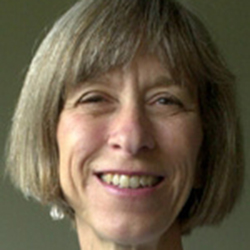
Rosalind Williams
Rosalind Williams is Dibner Professor of the History of Science and Technology (STS). From 1995 to 2000 she served as MIT’s first Dean of
Students and Undergraduate Education. In 2001 she joined the Program in Science, Technology, and Society, serving as program head from
2002-06. Her first three books (Dream Worlds, Notes from the Underground, Retooling) address this question: what are the implications for human life, both individual and collective, when we live in a predominantly self-constructed world? In responding to it, she has studied the emergence of consumer culture in late l9th century France; in the creation of underworlds, both imagined and actual, as models of a technological environment; and the retooling of MIT as the Institute confronts the effects of an information age of which it has been such a prime generator. Her new book, The Triumph of Human Empire (University of Chicago Press, 2013) surveys the overarching historical event of our time: the rise and triumph of human empire, defined by the dominance of human presence on the planet.
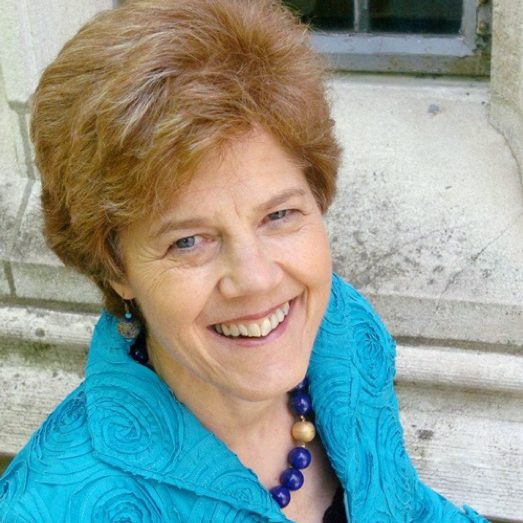
Diana Chapman Walsh, convener
Diana Chapman Walsh was President of Wellesley College from 1993 to 2007 (now president emerita). She is a Life member emerita of the MIT Corporation and former executive committee member. She served as Board Chair of the Broad Institute of MIT and Harvard (2009-15) and as Board member of the Kaiser Family Foundation; the Institute for Healthcare Improvement; the Mind and Life Institute; the State Street Corporation; and Amherst College. She is the recipient of eight honorary doctoral degrees and a member of the American Academy of Arts and Sciences. Prior to Wellesley, Walsh was professor and chair of the department of health and social behavior at Harvard School of Public Health, studying social factors affecting the health of populations.

